Here are 8 tips to use internet banking safely:
1. Always use genuine anti-virus software
To protect your computer from phishing, malware, and other security threats always use genuine anti-virus software. Anti-virus helps in detecting and removing spyware that can steal your sensitive information.
2. Avoid Using Public Wi-Fi or Use VPN software
The biggest threat of an open Wi-Fi network is that the hacker can sit in between the end user and the hotspot and can trace all the data without any difficulty. Usage of public Wi-Fi hotspots for internet or mobile banking and making payments on ecommerce sites should be avoided. Set up a VPN software on your computer, if you are a regular public Wi-Fi user. It creates a secure tunnel between the computer and the internet to prevent hackers from intercepting the traffic.
3. Check for latest updates of your Smartphone's operating system
Smartphone users should make sure their operating system is updated with the latest security patches and updates. Do not remove the security controls from the phone and always look to restrict access that apps ask for when being installed to only what the app really needs.
4. Change your password regularly and ensure it's a strong one
It is important to keep your account safe and helps you maintain confidentiality. DO NOT share your details with anyone. If you have written your banking passwords in a notepad or a dairy, make sure it remains confidential. Ensure to choose strong and long passwords. For additional security to financial transactions through Internet Banking, create and maintain different passwords for log-in and for transactions.
5. Subscribe for mobile notifications
If you haven't done it already, do it now as these notifications will alert you quickly of any suspicious transaction. These alerts will be able to tell you the remaining account balance, the transactions and unsuccessful login attempts to your net-banking account.
6. Avoid signing-in to your net-banking account via mailers
It is always safer to type the bank URL yourself than getting redirected to it via a promotional mail or any other third party website. A bank will never ask you to for the login credentials to your account. Hence, if you receive an email from a bank asking for login details, treat it with suspicion.
7. Do not use public computers to login to net banking
If you are using a public computer, the risk of compromising your login credentials is higher. Make sure you clear the cache and browsing history, and delete all the temporary files from the computer if you have to login from such places. DO NOT allow the browser to remember your ID and password.
8. Check your account regularly
Most banks have a 'last logged in' or 'login history' tab on their web sites. If you notice irregularities change your password and get in touch with your bank immediately.
